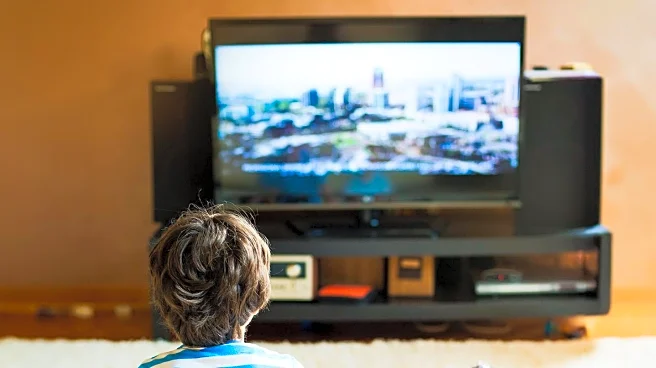What's Happening?
A recent discussion highlights the importance of parents setting better technology boundaries to reduce their children's screen time. According to psychologist Jean Twenge, a child's screen time is strongly
influenced by their parents' habits. Twenge, author of '10 Rules for Raising Kids in a High-Tech World,' emphasizes that parents should model smart technology habits by limiting their own screen time, especially during family interactions. Digital parenting coach Elizabeth Milovidov suggests that parents evaluate the necessity of their device use and create device-free zones in their homes. The goal is to foster healthier family connections and habits, such as better sleep and more in-person interactions.
Why It's Important?
The issue of excessive screen time among children is a growing concern, with implications for their emotional and physical well-being. By setting better tech boundaries, parents can help mitigate negative effects such as reduced emotional intelligence and disrupted sleep patterns in children. This approach not only benefits children's development but also strengthens family bonds by encouraging more face-to-face interactions. As digital devices become increasingly integrated into daily life, establishing these boundaries is crucial for promoting a balanced lifestyle and preventing technology from overshadowing personal relationships.
What's Next?
Parents are encouraged to implement practical strategies such as keeping devices out of bedrooms and designating device-free times and areas in the home. These measures can help manage screen time more effectively and set a positive example for children. As awareness of the impact of screen time grows, more families may adopt these practices, potentially leading to broader societal shifts in how technology is used within households. Continued research and public discussions on digital parenting will likely influence future guidelines and recommendations.
Beyond the Headlines
The conversation around screen time also touches on broader cultural and ethical considerations, such as the role of technology in modern parenting and the balance between digital convenience and personal interaction. As technology continues to evolve, parents face the challenge of navigating these changes while maintaining healthy family dynamics. This ongoing dialogue may lead to new insights and strategies for integrating technology into family life without compromising well-being.









